
For those of us who have been in hospitality for more than 15 years or attended hotel school, the name Tony Marshall has familiarity to us in the area of hospitality law. His reputation as an effective communicator and keynote speaker introduced many of us to understanding what reasonable care meant and his unique brand of humor made him one of the industry’s most recognized names in the last 25 years of the 20th century.
Marshall passed away 10 years ago (December 2006), yet his work and memory linger with many. If one does an internet search on his name[1], the business side of his legacy remains evident.
This column is different, in that I asked the industry for some personal insights on Tony and how he affected them. I personally knew Tony in several ways: we both worked in the same small hotel (Bonnie Oaks Resort in Fairlee, VT) about 20 years apart and one of his best friends was Professor Steve Fletcher who was the department chair of the Hotel & Restaurant program at my alma mater, the University of Massachusetts. While Tony was almost always boisterous in public, I saw first-hand his human side when he was encouraging Steve Fletcher in the mid-1990s as he and his family were dealing with the final stages of Lou Gehrig disease.
[1] Remembering Tony Marshall, The Messenger of “Reasonable Care …http://www.hotel-online.com/News/PR2007_1st/Mar07_TMarshall.html
Enjoy these examples of how Tony impacted others:
Doug Kennedy Kennedy Training Network www.KennedyTrainingNetwork.com Hollywood, FL 954.558.4777 doug.kennedy@kennedytrainingnetwork.com 
I will never forget the day I met Tony Marshall. At the time he was the Dean of the FIU School of Hospitality Management and also wrote a column for Hotel & Motel Management magazine. I was a 20 something entrepreneur with not much more than a wild dream to start a hotel training company. A mentor of mine told me to reach out to prominent people in the industry to ask for advice, so I wrote a letter to Dr. Marshall.
A few days later I called his office. At the time most executives had gatekeepers and it was very hard to reach someone directly, but not Tony! He took my call on the first try. I asked if he might have a few moments in the near future to meet with me and he said “How about right now? Come on down.” I jumped in my car and drove down to his office on campus.
I was SO nervous meeting such a prominent figure, but Tony right away made me feel at ease by joking around. When he came out into the waiting area I extended my hand but instead he grabbed my tie, turned it around to look at the label and said “Not bad, but you need to start buying better ties if you are going to make it in a hospitality career!” (This is advice that served me well I should add.)
Tony took nearly an hour out of his busy schedule to hear about my vision and review my carefully constructed business. After giving a long and thoughtful look, he responded that he did not think my business plan was going to be successful, as he thought I first needed more career experience. He then picked up the phone and after a brief chat handed it to me – it was a chance to interview for a job as the Director of Training for the Caribbean Hotel Association! Although it was a great opportunity, I turned down the job interview offer and thanked Tony for his advice, even though I was disappointed. On the way out he said encouragingly, “You are not the first person I told their plan wouldn’t work, and about 1 in 10 prove me wrong. Good luck in doing that young man!”
About 10 years later when I had 45 employees working for my hotel training company I had another meeting with Tony to remind him that I proved him wrong, and he was very happy that I had done so! Tony was a true hospitality superstar in every way.
Howard Feiertag, CHA CMP CHME Instructor at Virginia Tech and Higher Education Consultant Roanoke, VA (540) 231-9459 (mobile) howardf@vt.edu 
Howard and Tony wrote feature columns in HMM for more than 20 years and they often appeared at the same brand, association or management company programs. Tony had more than 400 columns over a 25 year period. Howard continues to publish his messages today and has more than 500 columns to date.
Tony was the best contributing editor of all the business trade publications as he was doing a monthly column for Hotel Motel Management magazine. He was always very articulate and humorous with his writings as well as with his speeches which he made frequently for the hotel industry.
A wonderful person who is very much missed from all who knew him in our industry.
Rocco M. Angelo Associate Dean & E.M. Statler Professor Alumni Relations 
Florida International University, North Miami, FL 305.919.4500 angelor@fiu.com
Where do I begin with stories about Anthony Glade Marshall?
First Tony worked for me, then I for him as a faculty member at FIU’s School of Hotel Food and Travel Services, as it was known at first. When he became Dean of the School I was made Associate Dean & Chair. When he retired from FIU and joined the Educational Institute of the American Hotel & Lodging Association, publishers of my textbook, he became my publisher. Our business association and friendship spanned almost 35 years.
Shortly after Tony graduated from the University of Syracuse Law school, he was hired by the accounting and consulting firm Laventhol Horwath (L & H) where I was the manager of the hospitality consulting division in the New York City office. Some of the consulting assignments had a legal dimension that Tony was expected to address. It was one of my duties to familiarize him with the consulting practice by involving him in various assignments for which I was responsible. Our experiences together could fill a book; a cost study of the food service at a 1000 bed mental hospital, a study of food service at a University where we experienced a drug bust in the dormitory where we were quartered, among others.
As the L&H consulting business expanded so did the staff. In order to find the best and the brightest young candidates, we sent our consultants to the major hotel schools. Although I am a Cornell alumnus, I assigned Tony to the Cornell Hotel School and arranged for him to lecture in a class. Tony had established already his famous speaking style and I suggested to Dean Robert Beck that he sit in on the lecture. Dean Beck had to be out of town so he asked Assistant Dean Gerald Lattin to attend the class. Thus began the series of events that would bring Tony to Florida International University when Gerald Lattin became the founding Dean of the hospitality school and hired Tony to be his assistant.
Skip Stearns Co-Founder and Principal, Hotel Experts. LLC  http://www.thehotelexpertsllc.com/ Greater Boston Area 603-778-0110 Skip@THEHOTELEXPERTSLLC.com
http://www.thehotelexpertsllc.com/ Greater Boston Area 603-778-0110 Skip@THEHOTELEXPERTSLLC.com
Skip was a career hotelier with Dunfey (now Omni Hotels) before he and his brother Steve co-founded the Hotel Experts, LLC in 2002. The group works with experienced hotel experts (associate offices in six states) providing hospitality and hotel consulting, litigation support and impartial hotel expert witness research, reports and testimony.
Hi John:
What a great idea! I did not know Tony personally, but like many hoteliers of our time, I looked forward to every issue of H&MM.
“At Your Risk” was usually the first place I turned to find the topic of the current issue, and the last article I read because I always enjoy saving the best for last.
Tony’s experiences, lessons, humor and communications skills were fantastically relevant in an era when risk management was phenomenally undervalued. As hotel experts who focus on safety and security today, we find his column and textbooks still relevant, and wishing that more operators were familiar with Tony’s fabulous educational rants.
Al Hodge Implementation Project Lead at ADP Orlando, FL alhodge129@gmail.com https://www.linkedin.com/in/al-hodge-4bb92a12 
Al was on the staff of the AH&LA Educational Institute for more than 20 years, servicing military education and major hotel brands in sales and support services.
Yes, I have a couple of Tony Marshall stories.
Tony was always more than just the President of EI – he genuinely cared about each member of his team.
After finishing the work at hand, he would draw us into his office for discussions on books and authors, ranging from the Harry Potter books to CS Lewis the author and he would, as usual, argue which were the better ones and why!
Many of the conversations we had were about life as opposed to work, which made me appreciate him as a human being.
Robert Rauch, CHA Chief Executive Officer RAR Hospitality San Diego, CA 858-239-1800 rauch@hotelguru.com www.rarhospitality.com 
John, I was a student at FIU when Tony Marshall was both Associate Dean of Hotel and Restaurant Management and Professor of Hospitality Law.
He convinced me to sign up and transfer from the University of Illinois in 1974 and was arguably my most influential professor through both undergraduate and graduate school though I had many great professors. He literally “lit the classroom on fire” to show us how quickly a restaurant can be destroyed by not taking “reasonable care” when serving table-side with a burner.
His exams were difficult and required rigorous study. I learned so much from his class that despite not being an attorney, I taught Hospitality Law earlier in my teaching career, my long time parallel universe to being a hotelier.
In my 40+ years in the hotel industry, there has not been one person who I have met who could more effectively capture an audience better than Tony Marshall. Many years ago, I almost had the guts to tell him, “Tony, I wish you did not smoke.” I always worried that he would get lung cancer. He will be missed for years and years.
Bob
William D. Frye, Ph.D., CHE, CHO, CHIA Associate Professor and Program Coordinator – College of Hospitality & Tourism Management at Niagara University, New York Niagara University, New York 716-984-8274 wfrye@niagara.edu 
One of the classes Frye teaches is hospitality law @ Niagara.
He commented that “…YES I knew him, but not close. We interacted on several occasions and while we did not have a friendship, (more professional acquaintances), he was a GIANT of a man without a doubt.”
Steve Belmonte, CHA CEO Vimana Franchise Systems, LLC Windermere, FL (407) 654-5540 Steve@VimanaFS.com www.VimanaFS.com 
As a former chairman of the Educational Institute and a long-time involved member of the AH&LA, I knew Tony Marshall very well. He had a genuine passion for what he did and had a grounded belief in the power of education.
Tony and I would often discuss an issue which remains prevalent today. We, in the hospitality industry, do not get our fair share of the bright young people out there; they are simply going to other industries. So many young people look at the hospitality industry as a dead-end job.
I would like to propose this. A formal college education may not be in the stars for everyone for various reasons, however, the hotel and restaurant industries are the last of the giant industries in which a formal education is not a prerequisite for success. A man or woman can achieve enormous success through hard work and perseverance.
What we need to do more as an industry is to tell our story to the young people. The owners, general managers and hospitality executives need to let the young people know they were not born with a silver spoon in their mouth. A substantial number of successful hospitality people today started at the very bottom and worked their way up.
Many, many general managers crossed over from management into ownership at some point. That is an incredible and motivating story to tell. If you need an example, look no further than myself. I did not graduate from college. I started on Mannheim Road in Chicago at the age of 16 as a desk clerk for $2.20 an hour. I moved up to assistant manager, eventually director of food & beverage, then as the youngest general manager in the history of Holiday Inn when I become the general manager of the Holiday Inn O’Hare Airport. Through hard work, creative marketing and building solid relationships with my employees, I continued to grow and eventually became president and CEO of one of the top ten management companies in the nation and then president and CEO of the Ramada brand and now currently CEO and owner of Vimana Franchise Systems which owns the Centerstone Hotel brand, the Key West Inn brand, and the Independent Collection by Vimana.
Love for the industry, passion, hard work, will take you to places you could not imagine. The hotel and restaurant industry is alive and well. We just need more leaders to get out and tell their story.
 This hospitality law book is one of the most used in hotel schools in the US. It is co-authored by UMASS professor Norman Cournoyer (my undergraduate advisor), Anthony Marshall and Karen Morris who has the final story about Tony.
This hospitality law book is one of the most used in hotel schools in the US. It is co-authored by UMASS professor Norman Cournoyer (my undergraduate advisor), Anthony Marshall and Karen Morris who has the final story about Tony.
Karen Morris Professor of Law at Monroe Community College Judge, Brighton Town Court https://www.linkedin.com/in/karen-morris-7281041b 
Tony Marshall was one-of-a kind. A consummate story teller and presenter, his style was nothing short of flamboyant, mesmerizing, great fun, and very effective. Audience members did not soon forget his message. Here’s one of my favorite examples.
Tony was everyone’s favorite speaker at annual conferences of the Council on Hotel Restaurant and Institutional Education (CHRIE), a national gathering of Hospitality Professors to explore new developments in the field. One year the title of Tony’s presentation was reported in the conference program as, “Don’t Mow Your Lawn on Friday Afternoon.” Attendees scratched their heads – what could he possibly be planning to discuss?? After much buzz, the date and time for the speech arrived. With curiosity peaked, the audience was in his palm before he even began.
Turns out, the topic was exactly what the title described. He was concerned that professors have a bad reputation because their job is viewed by many as cushy with sweetheart hours. He knew the reputation was not accurate. While the hours are indeed long for the research portion of the job, they are somewhat flexible which can be misleading. Tony, as a true admirer of both the hospitality field and hospitality education, sought to avoid any taint to either. The speech discouraged any action that would smirch either profession, including conduct by practitioners that suggests an abundance of leisure time that makes on-looking neighbors envious. Save those household chores for weekends and evenings.
I have long admired Tony’s commitment to advancing the field of hospitality evidenced so exquisitely in that speech. Love you Tony!
Marshall’s professional contributions to the industry continue to be noted with an annual award given at the Hospitality Law Conference held each year in Houston, this year April 24-26, 2017. http://hospitalitylawyer.com/conference-awards/

The Anthony G. Marshall Hospitality Law Award is given in recognition of pioneering and lasting contributions to the field of hospitality law. HospitalityLawyer.com Founder, Stephen Barth, says, “We honor Anthony Marshall for his pioneering and continued contributions to the field of hospitality law. He was the first to define reasonable care in a way that the average hotel manager, who is not a lawyer, could understand.”
Closing thought:
Tony proved he could communicate to hoteliers effectively through his writings and workshops, but he wanted to prove to the industry and academia that professors could actually run profitable hospitality businesses.
It was for this reason, Tony shared with me one time, that he actively sought the Presidency and leadership role of the AH&LA Educational Institute. During his time there from the 1990s through 2005, his leadership significantly reduced EI’s debt, increased the revenue stream and created new and updated products by actively working with industry both domestically and internationally.
The number of people who specifically remember him diminishes with time, yet Marshall left a legacy that continues to positively impact us. His active mentoring and supporting others, whether they were students, business team mates, brand executives or personal friends, made a difference.
I recall one of his favorite sayings was “You’re a good man (woman), and he’d use your name!”
Thank you for your lessons and wisdom, Tony, and you were a very good man!
All rights reserved by John Hogan and this column may be included in an upcoming book on hotel management. This article may not be reproduced without the expressed permission of the author.
The opinions expressed in this article are those of the author and do not necessarily reflect the views of this publication.
Tags: tony marshall, anthony marshall, anthony marshall award
About John J. Hogan
 John J. Hogan, CHA CMHS CHE CHO[2] is a successful hospitality executive, educator, author and consultant and is a frequent keynote speaker and seminar leader at many hospitality industry events. He is Co-Founder and Chief Learning Officer of HospitalityEducators.com, which was founded in 2010 as a solutions center for hotel owners and managers. He is also the Principal of HoganHospitality.com, which offers hotel expert witness services and hospitality consulting.
John J. Hogan, CHA CMHS CHE CHO[2] is a successful hospitality executive, educator, author and consultant and is a frequent keynote speaker and seminar leader at many hospitality industry events. He is Co-Founder and Chief Learning Officer of HospitalityEducators.com, which was founded in 2010 as a solutions center for hotel owners and managers. He is also the Principal of HoganHospitality.com, which offers hotel expert witness services and hospitality consulting.
He is currently working with his partner Kathleen Hogan and others on several new projects including the HOTELIERMASTERMIND series, an eBook series with Howard Feiertag on hotel sales, two new web sites and a fresh set of Keynote and Workshop programs, hospitality services and columns.
[2] Certified Hotel Administrator (CHA), Certified Master Hotel Supplier (CMHS), Certified Hospitality Educator (CHE), Certified Hotel Owner (CHO)
Contact: John Hogan John@HoganHospitality.com / 602-799-5375

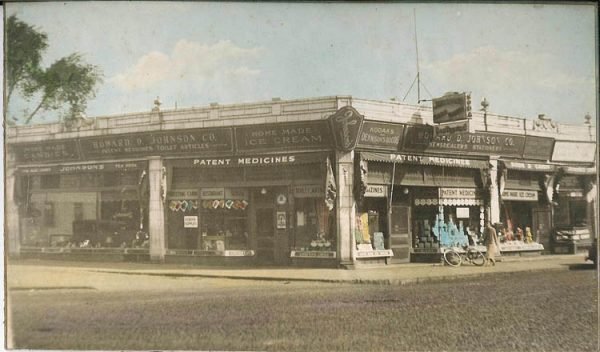
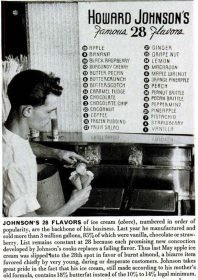
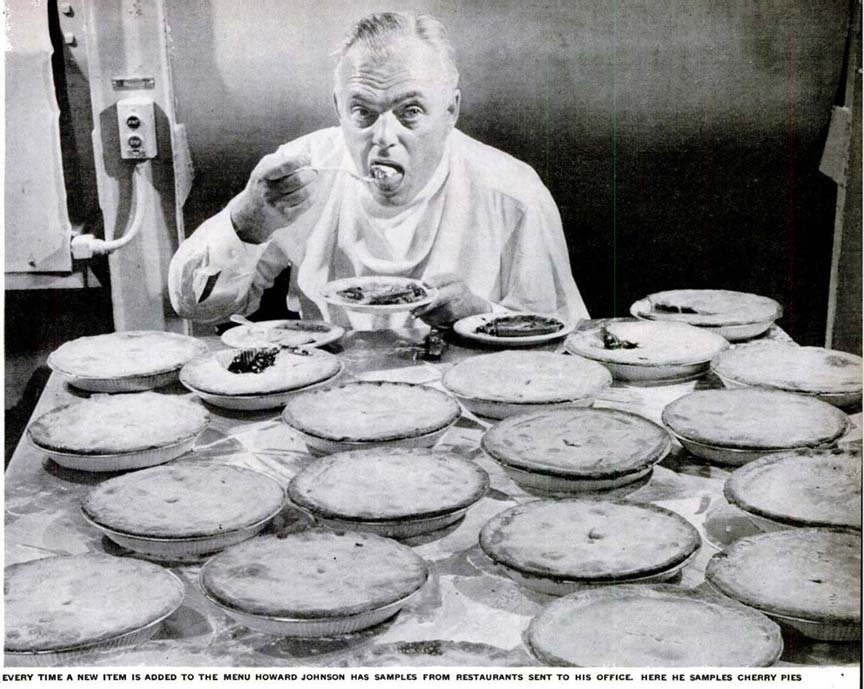
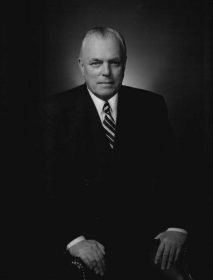
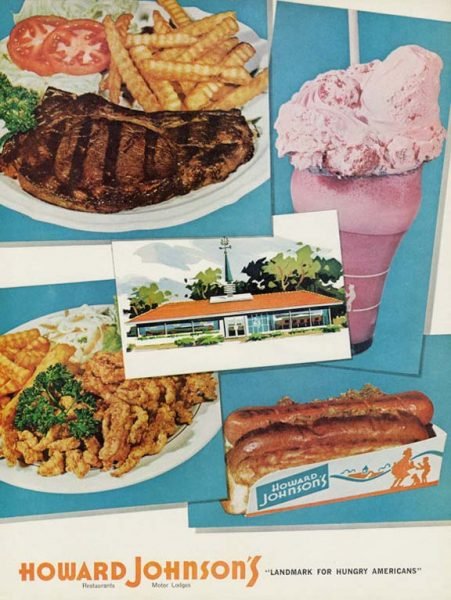



 Parting advice: Keep your enthusiasm. Keep your focus. Enjoy what it is you do and regularly figure out how you can get 10% better this month. Within the year you will 100% be there!
Parting advice: Keep your enthusiasm. Keep your focus. Enjoy what it is you do and regularly figure out how you can get 10% better this month. Within the year you will 100% be there!











 John J. Hogan, CHA CMHS CHE CHO
John J. Hogan, CHA CMHS CHE CHO








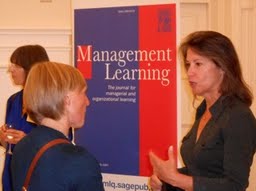
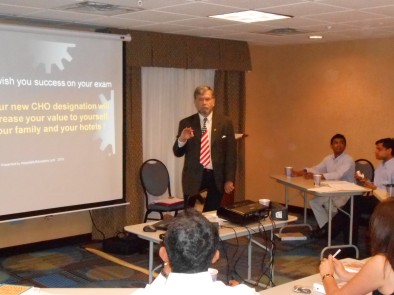
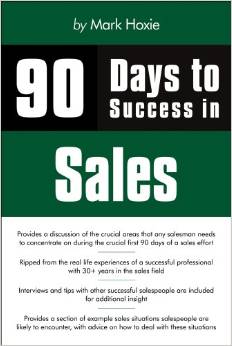
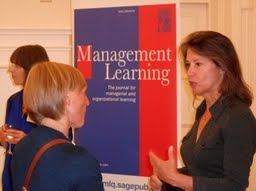
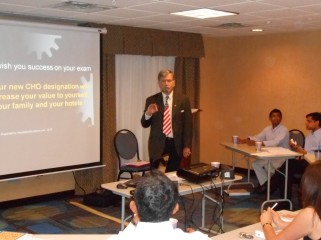 consulting, training, and individualized support to both hospitality and other service businesses. Services include keynote addresses workshops, online support, metrics measurement, marketing and customer service from a group of more than a dozen experienced professionals. While continuing to serve hospitality, the demand for these types of services is growing and can be personalized.
consulting, training, and individualized support to both hospitality and other service businesses. Services include keynote addresses workshops, online support, metrics measurement, marketing and customer service from a group of more than a dozen experienced professionals. While continuing to serve hospitality, the demand for these types of services is growing and can be personalized.









